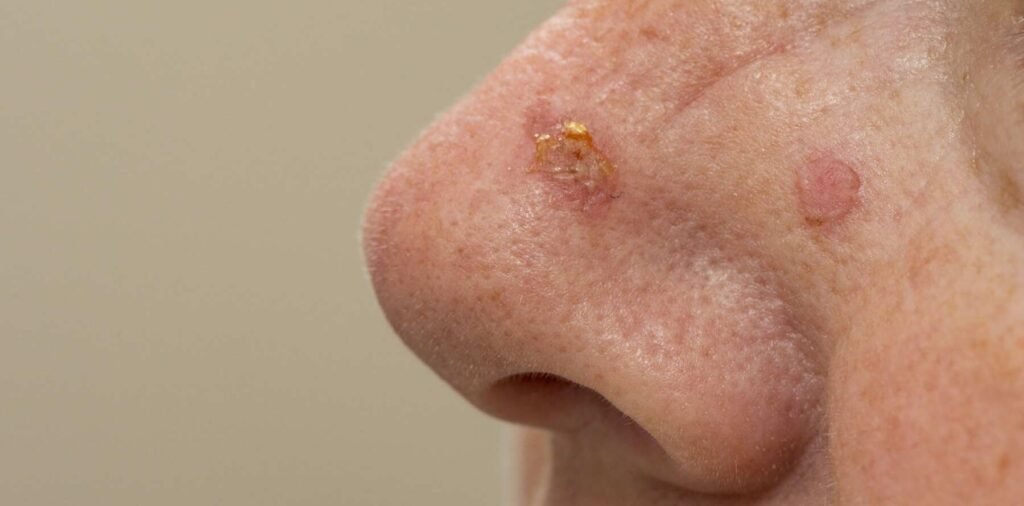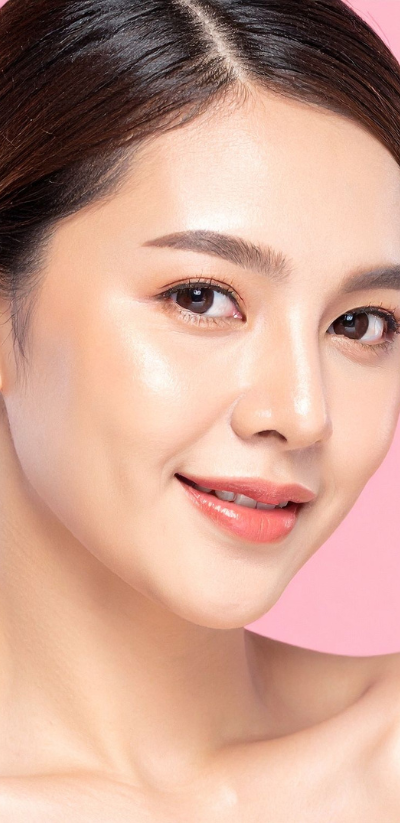Actinic Keratosis Treatment

Protect Your Skin: Effective Actinic Keratosis Treatment in Bandra, Mumbai
Table of Contents
- Understanding Actinic Keratosis
- Appearance of Actinic Keratosis
- Common Locations for Actinic Keratosis
- Causes of Actinic Keratosis
- Symptoms of Actinic Keratosis
- Diagnosis and Treatment Options
- Actinic Keratosis Treatment at Bliss Skin, Hair and Dental Clinic in Bandra
- Importance of Early Detection and Treatment
- Preventing Actinic Keratosis
- FAQs about Actinic Keratosis
- Conclusion
Understanding Actinic Keratosis {#understanding-actinic-keratosis}
Actinic keratosis (AK), commonly referred to as a precancerous skin condition, manifests as flaky spots or patches on the skin, primarily due to prolonged exposure to ultraviolet (UV) rays. These patches can appear as single bumps or multiple keratoses, which are small, rough areas that can develop over time.
Appearance of Actinic Keratosis {#appearance-of-actinic-keratosis}
Actinic keratosis typically presents as rough, scaly patches on the skin, usually no larger than an inch in diameter. These patches can vary in color, appearing tan, white, pink, or even the same color as your skin, but they often turn red as they progress. AK usually first appears in individuals around the age of 40, taking several years to develop.
Common Locations for Actinic Keratosis {#common-locations}
AK can occur in various areas of the body, particularly those frequently exposed to the sun, including:
- Back of the neck
- Hands
- Forearms
- Shoulders
- Scalp
- Face
- Lips
- Ears
- Eyelids
Causes of Actinic Keratosis {#causes-of-actinic-keratosis}
The primary cause of actinic keratosis is long-term exposure to UV rays from the sun or tanning beds. Several factors can increase your susceptibility to developing AK, including:
- Age: Individuals over 40 are at a higher risk.
- Sun Exposure: Frequent sun exposure or a history of sunburns can contribute to the development of AK.
- Geographical Location: Living in sunny regions increases the likelihood of UV exposure.
- Skin Type: People with light-colored hair or eyes are more prone to AK.
- Medical History: A history of skin cancer or previous actinic keratosis increases risk.
- Immune System: A weakened immune system due to certain conditions or treatments can elevate the risk of developing AK.
Symptoms of Actinic Keratosis {#symptoms-of-actinic-keratosis}
Actinic keratosis can be precancerous, meaning it has the potential to develop into skin cancer if left untreated. Symptoms can range from mild to severe and may include:
- Rough, flaky spots on the skin, usually no larger than an inch.
- Slightly protruding bumps that may feel firm or wart-like.
- Itchiness or a burning sensation in the affected areas.
- Variations in color, with patches appearing tan, white, pink, or red.
Diagnosis and Treatment Options {#diagnosis-and-treatment}
If you suspect you have actinic keratosis, it is crucial to consult a dermatologist at Bliss Skin, Hair and Dental Clinic in Bandra, Mumbai, for an accurate diagnosis and appropriate treatment. Early detection is key to preventing the progression to skin cancer.
Actinic Keratosis Treatment at Bliss Skin, Hair and Dental Clinic in Bandra {#treatment-at-bliss-clinic}
At Bliss Skin, Hair and Dental Clinic in Bandra, our experienced dermatologists offer a range of effective treatments for Actinic Keratosis, including:
- Cryotherapy: Freezing the keratosis with liquid nitrogen to destroy the abnormal skin cells.
- Topical Medications: Prescription creams or gels applied directly to the affected areas.
- Photodynamic Therapy: Using a photosensitizing agent and light to target and eliminate the abnormal skin cells.
- Laser Therapy: Utilizing laser technology to remove the damaged skin.
- Surgical Excision: In some cases, the larger or more persistent lesions may require surgical removal.
Importance of Early Detection and Treatment {#importance-of-early-detection}
Early detection and treatment of Actinic Keratosis are crucial, as it can prevent the condition from progressing into skin cancer. Our dermatologists at Bliss Skin, Hair and Dental Clinic in Bandra are dedicated to providing prompt and effective treatment to ensure the best possible outcomes for our patients.
Preventing Actinic Keratosis {#preventing-actinic-keratosis}
To reduce the risk of developing Actinic Keratosis, it is essential to take the following preventive measures:
- Limit sun exposure, especially during peak hours (10 AM to 4 PM).
- Use broad-spectrum sunscreen with an SPF of 30 or higher.
- Wear protective clothing, such as hats, long-sleeved shirts, and pants.
- Avoid tanning beds and other sources of UV radiation.
- Perform regular self-examinations to detect any suspicious skin changes.
- Schedule routine skin checks with a dermatologist, especially if you have a history of AK or skin cancer.
FAQs about Actinic Keratosis {#faqs}
Is Actinic Keratosis contagious?
No, Actinic Keratosis is not a contagious condition and cannot be spread from person to person.Can Actinic Keratosis turn into skin cancer?
Yes, Actinic Keratosis is considered a precancerous condition and can potentially develop into skin cancer, such as squamous cell carcinoma, if left untreated.How often should I get my skin checked for Actinic Keratosis?
It is recommended to have regular skin checks with a dermatologist, especially if you have a history of AK or sun damage. The frequency may vary depending on your individual risk factors.Can Actinic Keratosis be prevented?
Yes, taking preventive measures like sun protection, limiting UV exposure, and performing regular self-examinations can help reduce the risk of developing Actinic Keratosis.What happens if Actinic Keratosis is left untreated?
If left untreated, Actinic Keratosis can progress to become a more serious form of skin cancer, emphasizing the importance of seeking prompt medical attention.
Conclusion {#conclusion}
If you are concerned about Actinic Keratosis or have noticed any suspicious skin changes, don’t hesitate to schedule a consultation with the experienced dermatologists at Bliss Skin, Hair and Dental Clinic in Bandra, Mumbai. Our team is dedicated to providing comprehensive care, early detection, and effective treatment to protect your skin and prevent the progression to skin cancer. Take proactive steps today to safeguard your skin’s health and well-being.
Learn more about Actinic Keratosis
Explore treatment options for Actinic Keratosis
American Academy of Dermatology: Actinic Keratosis
Bliss Skin, Hair and Dental Clinic: Actinic Keratosis Treatment in Bandra
Protect your skin and ensure your long-term health by seeking Actinic Keratosis Treatment in Bandra at Bliss Skin, Hair and Dental Clinic. Schedule your consultation today and take the first step towards a safer, healthier future.
- Phone:
- For Appointments: +91 9322 122 111
- General Inquiries: +91 9323 133 222
- Website: Bliss Hair, Skin & Dental Clinic: https://blisskindental.com
- Social Media:
- Facebook: Bliss Hair, Skin & Dental Clinic Facebook Page: https://www.facebook.com/blisskindental
- Instagram: Bliss Hair, Skin & Dental Clinic Instagram: https://www.instagram.com/blisskindental/
- YouTube: Bliss Hair, Skin & Dental Clinic YouTube Channel: https://www.youtube.com/@blisskindentalpolyclinic4874
Location:
- Address: Bliss Hair, Skin & Dental Clinic, 6 Hilton Apartment, 35-A Hill Road, Bandra-50 AS, Opp Alco Shopping Centre, Mumbai – 400 050
- Google Maps: Bliss Hair, Skin & Dental Clinic on Google Maps: https://g.page/BestskinDermatologistinBandra?gm
You can even find us on :
- Bliss Hair, Skin & Dental Clinic on Justdial: https://www.justdial.com/Mumbai/Bliss-Skin-And-Dental-Polyclinic-Metropolis-Lab-Opposite-Elco-Shopping-Centre-Bandra-West/022PXX22-XX22-171014154721-E2I4_BZDET
- Bliss Hair, Skin & Dental Clinic on Practo: https://www.justdial.com/Mumbai/Bliss-Skin-And-Dental-Polyclinic-Metropolis-Lab-Opposite-Elco-Shopping-Centre-Bandra-West/022PXX22-XX22-171014154721-E2I4_BZDET
- Bliss Hair, Skin & Dental Clinic Featured on Top Rated: https://www.justdial.com/Mumbai/Bliss-Skin-And-Dental-Polyclinic-Metropolis-Lab-Opposite-Elco-Shopping-Centre-Bandra-West/022PXX22-XX22-171014154721-E2I4_BZDET
- Bliss Hair, Skin & Dental Clinic on Yappe: https://www.blissdentallv.com/
- Bliss Hair, Skin & Dental Clinic on Drlogy: https://blisskindental.com/

